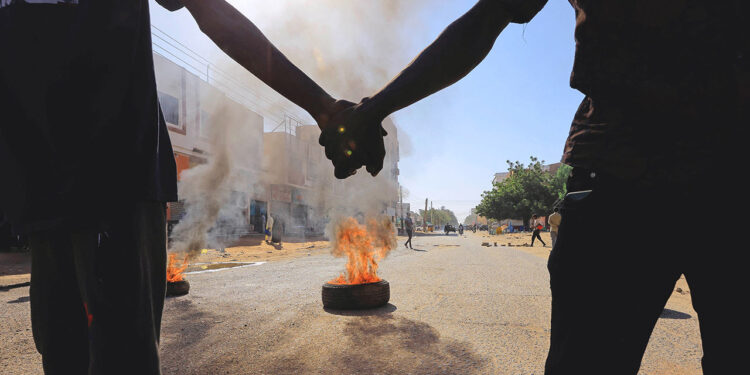The recent announcement by Mali’s military rulers that they had foiled an attempted coup involving senior military officers and a suspected French agent once again underscores the fragility of political transitions in West Africa. According to Mali’s Security Minister, Gen Daouda Aly Mohammedine, the alleged plot, which began on 1 August, was orchestrated by two Malian generals—Abass Dembélé and Néma Sagara—and a French national identified as Yann Vezilier, said to be working “on behalf of the French intelligence service” (The Guardian, 2025).
This episode reflects not only the deep mistrust between Mali’s junta and perceived external actors but also the wider regional pattern of recurrent coups since 2020, a phenomenon that has significantly undermined democracy and stability across Africa.
This article looks at the coup canker in West Africa and the larger adverse security implications, and how it threatens the fledgling democracy on the continent.
Coups in West Africa Since 2020
Since August 2020, Africa has witnessed eight coups, with the majority taking place in Francophone West Africa. Mali itself has suffered two in quick succession—the first on 18 August 2020, when President Ibrahim Boubacar Keïta was overthrown, and the second on 24 May 2021, when Colonel Assimi Goïta consolidated power (The Guardian, 2024).
In Guinea, President Alpha Condé was deposed in September 2021 by Colonel Mamady Doumbouya, while Sudan experienced a military takeover in October 2021 under Gen Abdel Fattah al-Burhane.
Burkina Faso recorded two putsches within the same year: the ousting of President Roch Marc Christian Kaboré in January 2022, followed by the overthrow of his successor Lt-Col Paul-Henri Damiba in September 2022 by Captain Ibrahim Traoré.
Niger joined the list on 26 July 2023, when Gen Abdourahamane Tiani deposed President Mohamed Bazoum.
The last within that period was on 30 August 2023, when Gabonese soldiers toppled President Ali Bongo just hours after his disputed re-election, appointing Gen Brice Oligui Nguema as transitional leader.
The frequency of these coups has raised critical questions about the future of democratic governance in the region. Military juntas have often used grievances such as corruption, insecurity, and neo-colonial ties with France to justify their actions. Yet, their prolonged rule—often accompanied by repression and suspension of political processes—erodes trust in both military and civilian governance structures (Lyammouri, 2024).
Security Implications of Repeated Coups
Coups generate political uncertainty, disrupt governance, and weaken institutions, creating fertile ground for insurgency and terrorism. In Mali, Burkina Faso, and Niger, which together form the epicentre of the Sahel conflict, armed groups linked to al-Qaeda and the Islamic State have exploited political instability to expand their operations. Following the expulsion of French troops and the entry of Russian paramilitary support, Mali’s security situation has deteriorated further, with civilians bearing the brunt of intensified militant attacks (The Guardian, 2024).
The Economic Community of West African States (ECOWAS) has warned that these coups are worsening insecurity. ECOWAS Commission President Omar Touray disclosed in December 2023 that in Mali, Burkina Faso, and Niger alone, 4.8 million people faced food insecurity, 2.4 million were internally displaced, and nearly 9,000 schools remained closed (ECOWAS, 2023). Beyond humanitarian consequences, coups fragment military hierarchies, creating disgruntled factions within armies that may either plot countercoups or defect to armed groups, thus worsening regional instability.
The Adverse Impact on Democracy
While coup leaders often justify their actions as corrective measures to rescue states from corrupt or illegitimate civilian governments, their extended stay in power frequently betrays these claims. In Mali, Goïta was recently granted another five years in power, despite earlier promises to restore civilian rule by March 2024 (The Guardian, 2024). Similarly, juntas in Guinea and Burkina Faso have repeatedly shifted electoral timelines, raising concerns about the entrenchment of military authoritarianism.
Moreover, coups undermine public confidence in the ballot box as a legitimate means of effecting political change. They perpetuate a cycle where disillusioned populations see the military—not democratic institutions—as the ultimate arbiter of governance.
This is compounded by long-serving civilian leaders who manipulate constitutions to extend their rule, such as the Bongo dynasty in Gabon or Faure Gnassingbé’s prolonged presidency in Togo. These examples reinforce the perception that democracy in Africa is often a façade, leaving coups as an appealing—though destabilising—alternative.
Conclusion
The attempted coup in Mali is not an isolated event but part of a broader pattern of democratic backsliding in West Africa. Beyond undermining governance, coups have deep security implications, particularly in fragile regions like the Sahel where extremist groups exploit instability to expand their influence.
They also cast doubt on Africa’s democratic trajectory, reviving memories of the 1960s–80s era of recurrent putsches. Unless structural reforms address governance failures, corruption, and neo-colonial grievances, West Africa risks remaining locked in a vicious cycle where coups, repression, and insecurity reinforce one another at the expense of democratic consolidation.
References
- The Guardian. (2025). Mali arrests generals and alleged French agent over coup plot. Retrieved from: https://www.theguardian.com/
- ECOWAS. (2023). Statement by ECOWAS Commission President Omar Touray at the 51st Ordinary Session of the Mediation and Security Council. Abuja.
Lyammouri, R. (2024). Policy analyst commentary on Mali coup attempt. Policy Center for the New South.






























